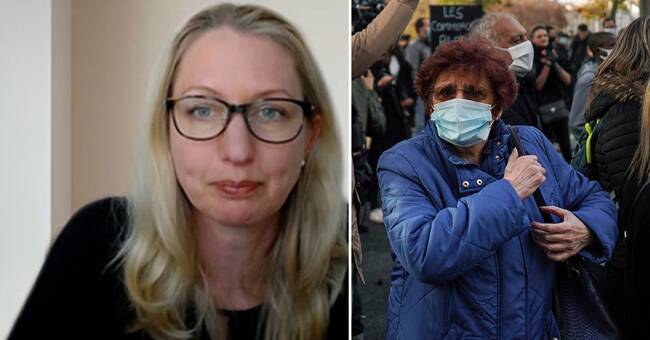The spread of the coronavirus differs from country to country in Europe.
While several countries are still largely closed, others have begun to ease restrictions.
But one thing is for sure: the infection is not gone.
- What can happen now is that it picks up speed again.
It depends a bit on how far you have come in the vaccinations and in what forms you open up.
Denmark opens up with a lot of requirements for vaccination and vaccination passports.
In other countries such as Greece, they want to open up to tourists before the summer, says Karin Modig, associate professor of epidemiology at Karolinska Institutet.
"Costs on human health"
Last week came the long-awaited opening of pubs and restaurants in England.
Vaccination has come a long way there and the spread of infection has gone down to a level where it has been judged that it is sustainable to open up, says Karin Modig.
Greece, which has also eased restrictions, however, has an upward curve of infection.
That's probably more about the closure being too costly.
- It has become clear that there will be very large costs from these shutdowns.
And they become more apparent the longer the pandemic lasts.
It costs people's health and level of education, says Karin Modig.
It is important that the vaccine reaches everyone
It has been a year since Europe began to reopen after the first wave of shutdowns.
And there are several things the countries have learned since then, Karin Modig believes.
- We know more about which environments are particularly risky.
It is known that it is much less risky to spend time outdoors than indoors.
One lesson is to limit crowds of people, it has proven to be important.
If you open up, you do it with certain restrictions, you do that here in Sweden as well, she says.
Will we see a fourth corona wave in Europe?
- It looks different in different countries, but there is certainly reason to believe that it will go up again this autumn. Especially if the vaccinations have not reached all countries or reached the groups where they are needed.

